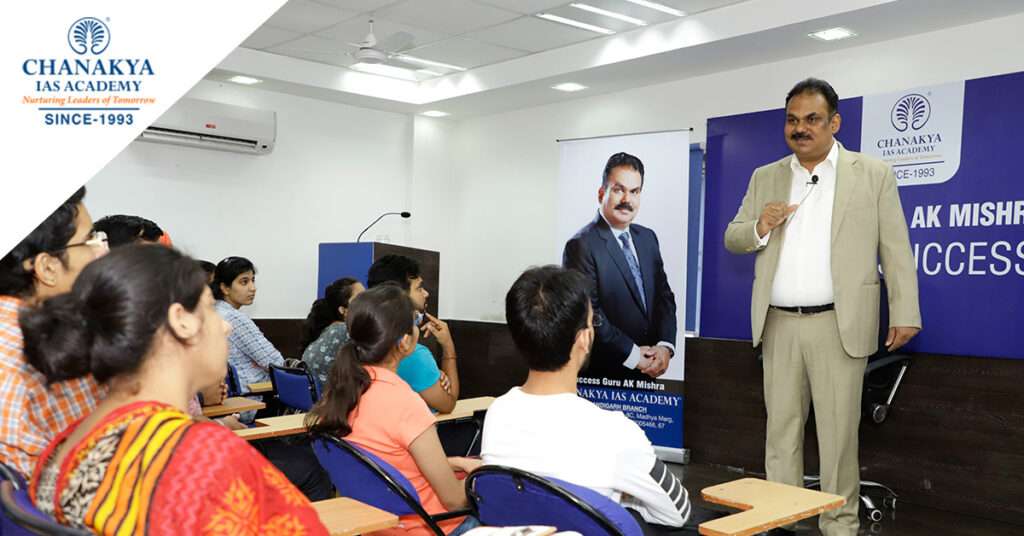The Civil Services Examination in India is renowned for its prestige and difficulty. Thousands of aspirants compete for a limited number of positions yearly, making the competition fierce. The exam is not only demanding due to its extensive syllabus but also because of its highly unpredictable nature.
Mere bookish knowledge is insufficient to crack the UPSC exam. The final stage of the selection process involves a personality test, where the UPSC board evaluates the candidate’s suitability for a career in the services. This necessitates holistic development, encompassing academic knowledge, staying updated with current affairs, and gaining insights into the latest national and international happenings.
To succeed in the UPSC exam, it is crucial to cultivate a well-rounded approach that goes beyond mere syllabus completion and embraces continuous learning and awareness. Seeking guidance from a reputable Civil Service Coaching in Chandigarh can greatly support you in developing this approach.
To succeed in the UPSC exam, you must have a well-rounded approach. It’s not just about finishing the syllabus but also about constantly learning and staying aware of current affairs. This article will give you all the information you need to prepare for the UPSC exam and change your future.
UPSC Preparation Tips & Strategies
Understand the Exam Pattern
The civil services examination has three stages: the Preliminary Examination, the Main Examination, and the Personality Test.
- The Preliminary Exam is a standardised test that measures general knowledge and aptitude.
- The Main Exam is a subjective assessment of in-depth knowledge and analytical skills via essay writing and subject papers.
- The Personality Test assesses your personality traits as well as your communication skills.
To prepare effectively, it is critical to understand the exam pattern and requirements for each stage. Study and practice previous papers to lay a solid foundation. Improve your writing, critical thinking, and time management skills. Improve your overall personality, communication skills, and confidence in preparation for the Personality Test.
Create a Study Plan
It takes commitment and effort to study for the civil services examination. Create a well-organized study plan to prepare effectively.
- Divide the big syllabus into smaller parts and assign a specific time for each topic.
- While creating the plan, take your strengths and weaknesses into account.
- To advance your knowledge and skills, ensure you have enough time to review and take practice exams.
- Set both short- and long-term attainable objectives.
This will assist you in monitoring your development and maintaining motivation. Your chances of passing the civil services examination can be improved by adhering to a structured study schedule and remaining dedicated.
Focus on Conceptual Clarity
It is essential to have a comprehensive understanding of many subjects in order to do well on the civil services exam.
- Develop conceptual clarity as a top priority rather than relying on memorisation.
- Establish a solid foundation in science, history, geography, economics, and politics.
- Make an effort to comprehend the underlying ideas, theories, and applications.
- This strategy will not only make it easier for you to answer exam questions, but it will also improve your analytical and critical thinking skills.
By concentrating on conceptual understanding, you’ll be better able to apply your knowledge and show a higher level of thinking in the civil services exam.
Stay Updated with Current Affairs
Current affairs hold significant importance in the civil services examination. It is crucial to stay updated with national and international news, government policies, socio-economic developments, and other relevant information.
- Regularly read newspapers, magazines, and reliable online sources.
- Make notes of important events, issues, and their implications.
- Current affairs questions can appear in the Preliminary and Main Examinations, so maintaining an up-to-date knowledge base is essential.
- Regularly attempt quizzes and mock tests to assess your understanding and retention of current affairs.
You enhance your chances of performing well in the civil services examination by actively engaging with current affairs.
Practice Answer Writing
Developing effective answer-writing skills is important for succeeding in the civil services exam. Here are some key points to remember:
- Write clearly and concisely using simple language, avoiding complicated words.
- Practice regularly to get used to the exam’s subjective nature.
- Support your answers with examples and facts to make them stronger.
- Organise your answers logically and coherently.
- Manage your time wisely during the exam, ensuring you complete all the questions.
- Join the Best Civil Service Coaching Centre in Chandigarh to Seek feedback and help from professional mentors and teachers. Their advice will help you identify areas for improvement and enhance your overall performance.
By practising regularly, using relevant examples, and seeking feedback, you can improve your answer writing skills and increase your chances of success in the civil services exam.
Seek Guidance and Mentorship
Preparing for the civil services exam can be overwhelming, and guidance from experienced mentors can be invaluable.
Join Civil Service Coaching in Chandigarh, which offers expert guidance and resources. Interact with successful candidates, retired civil servants, and subject matter experts to gain insights and clarity.
Join study groups or online forums to discuss and exchange ideas with fellow aspirants. Having a mentor or a support network can provide guidance, motivation, and valuable feedback on your progress.
Preparing for the civil services exam requires a systematic and disciplined approach. You can enhance your chances of success by understanding the exam pattern, creating a study plan, focusing on conceptual clarity, staying updated with current affairs, practising answer writing, and seeking guidance.

